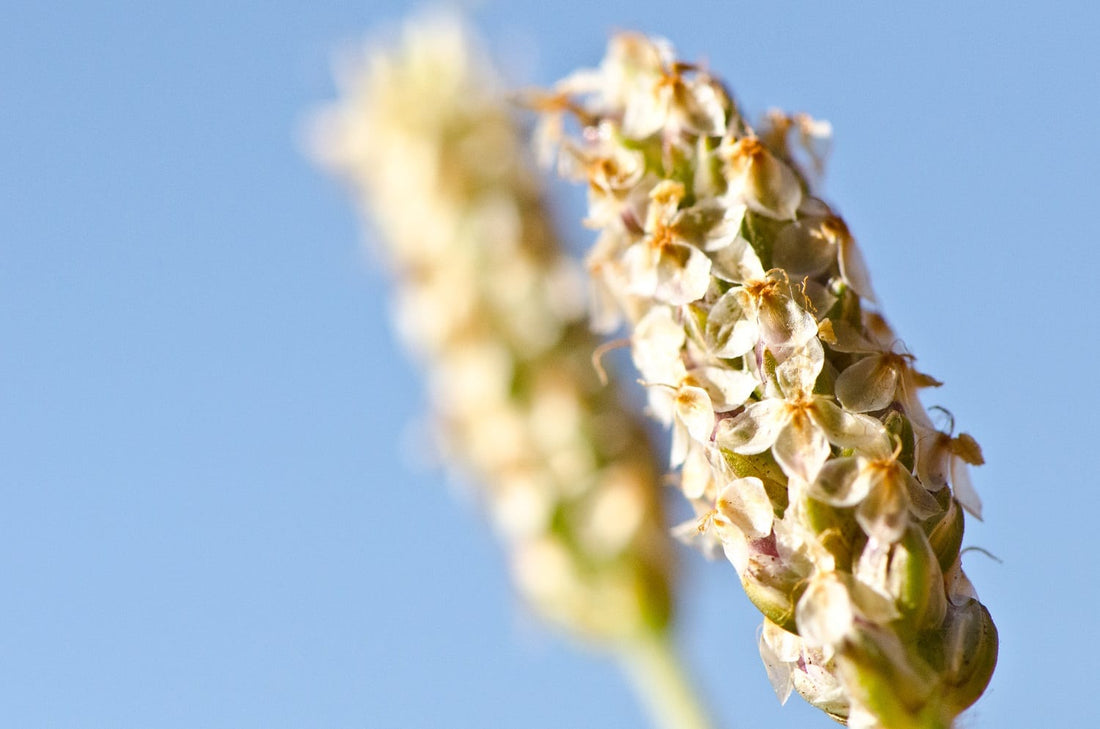
What is Psyllium Husk and Why Is It Good For You?
When it comes to supporting digestive health, few natural ingredients are as effective as psyllium husk. You might have seen it in fibre supplements or foods designed to promote regularity, but what exactly is psyllium husk, and why is it so beneficial? In this post, we’ll explore what psyllium husk is, how it’s made, its nutritional profile, health benefits, safety considerations, and why it plays a key role in fibre supplements.
What is Psyllium Husk?
Psyllium husk is the outer coating, or husk, of the seeds of Plantago ovata, a plant native to India and parts of the Mediterranean. This husk is a rich source of soluble fibre, which forms a gel-like substance when mixed with water. Unlike some fibres, psyllium husk is unique in its ability to absorb many times its weight in water, making it highly effective at softening and bulking the stool, promoting regular bowel movements.
How is Psyllium Husk Made?
The process of producing psyllium husk involves a few simple but crucial steps to preserve its natural fibre content:
- Harvesting: The seeds of the Plantago ovata plant are harvested when mature.
- Separation: The outer husk is carefully separated from the seed, as the husk contains the highest concentration of soluble fibre.
- Cleaning & Drying: The husks are cleaned and dried to ensure purity and retain their natural properties.
- Milling: Finally, the dried husks are milled into a fine powder or left as larger flakes, ready to be used in supplements, foods, and beverages.
Nutritional Profile of Psyllium Husk
Psyllium husk is known for its impressive fibre content, which makes up the majority of its nutritional profile. Here's a closer look at its key components:
- Fibre: Psyllium husk is composed of about 70% soluble fibre and 30% insoluble fibre, offering a well-rounded digestive benefit.
- Calories: Very low in calories, with most of its energy coming from indigestible carbohydrates (fibre).
- Carbohydrates: The carbohydrates in psyllium are mostly non-digestible, meaning they don’t significantly impact blood sugar levels.
- Protein & Fat: Psyllium contains negligible amounts of protein and fat, making it a pure fibre source.
Health Benefits of Psyllium Husk
-
Promotes Digestive Regularity
Psyllium husk absorbs water in the gut, forming a gel-like substance that softens stools and helps them pass more easily. This makes it highly effective for relieving constipation and maintaining regular bowel movements. -
Supports Gut Health
The gel formed by psyllium husk slows down digestion, allowing more time for nutrients to be absorbed and supporting the growth of beneficial gut bacteria. -
Helps Manage Cholesterol Levels
Studies have shown that psyllium can help lower LDL (bad) cholesterol by binding to bile acids in the digestive system and removing them from the body. -
Aids in Blood Sugar Control
The soluble fibre in psyllium slows the absorption of carbohydrates, which can help stabilise blood sugar levels and improve insulin sensitivity. -
Supports Weight Management
Psyllium husk promotes a feeling of fullness by absorbing water and expanding in the stomach, which may help reduce overall calorie intake.
Addressing Common Concerns
Is Psyllium Husk Safe?
Yes, psyllium husk is generally safe for most people and has been used for centuries as a natural remedy for digestive issues. It is often recommended by healthcare professionals for individuals with constipation, irritable bowel syndrome (IBS), or elevated cholesterol levels.
Potential Side Effects
While psyllium husk is well-tolerated by most, some individuals may experience mild side effects such as:
- Bloating or Gas: This can occur when first introducing psyllium, especially if not enough water is consumed.
- Digestive Discomfort: If taken in large quantities or without adequate hydration, psyllium may cause bloating or a feeling of fullness.
To avoid these issues, it’s important to start with a small dose and increase gradually, always accompanied by plenty of water. The Gut Tailor's Fibre Plan introduces psyllium husk into your diet slowly to avoid these side effects.
Why Psyllium Husk Pairs Well in a Fibre Supplement
Psyllium husk is a cornerstone ingredient in fibre supplements due to its unique properties and ability to complement other fibres:
- Excellent Water Absorption: Psyllium's ability to absorb water and form a gel enhances the overall texture and effectiveness of fibre supplements, especially in promoting regularity.
- Balanced Soluble & Insoluble Fibre: Its combination of soluble and insoluble fibres provides a comprehensive approach to digestive health, supporting both stool consistency and gut motility.
- Synergistic Effect: When paired with other fibres like chia seeds, flaxseed, and green banana flour, psyllium husk enhances the blend's ability to support gut health, regularity, and satiety.
- Gentle on the Gut: Psyllium’s slow and steady action makes it suitable for individuals with sensitive digestive systems, ensuring comfort and ease of use.
Final Thoughts
Psyllium husk is a remarkable natural ingredient that offers a wide range of health benefits, from improving digestion and supporting gut health to managing cholesterol and blood sugar levels. Its unique ability to absorb water and form a gel makes it an essential component of high-quality fibre supplements like The Gut Tailor's Fibre Plan.
